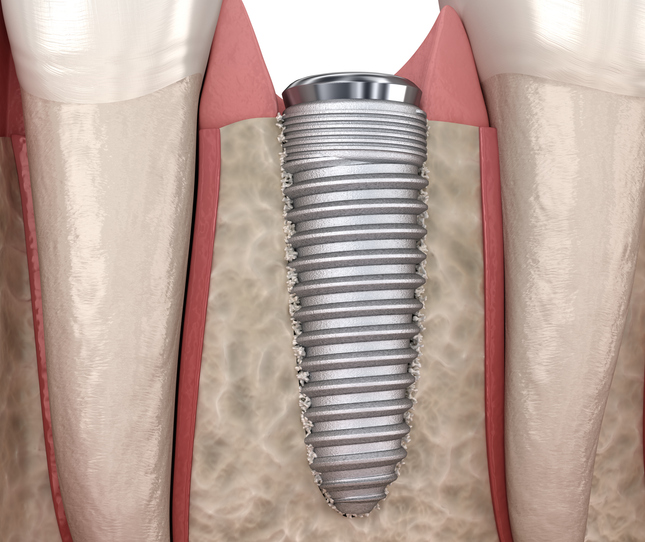
Peri-implant characteristics may reveal dental implant health, disease onset

Researchers have examined the factors that may be predictive of dental implant health.
In a cross-sectional study published in the Journal of Clinical Periodontology, the researchers used a manual periodontal probe or digital caliper to analyze aspects of the peri-implant phenotype — including keratinized mucosa width, mucosal thickness, attached mucosa and vestibulum depth. They then sought to determine the relationship between certain peri-implant characteristics and the incidence of peri-implantitis and peri-implant soft-tissue dehiscence among 324 implants in 112 patients.
The researchers determined that the absence of keratinized mucosa width and attached mucosa as well as a reduced vestibulum depth were all linked to peri-implantitis; whereas keratinized mucosa width and thin mucosa in addition to a reduced vestibulum depth were linked to peri-implant soft-tissue dehiscence. Further, dysregulated inflammatory markers in the peri-implant crevicular fluid and upregulated soft-tissue remodeling were identified at sites lacking keratinized mucosa width.
The findings indicated that peri-implant phenotype may aid clinicians in assessing the health of dental implants. However, larger prospective studies are needed to better understand the implications of the study.
Read more: Journal of Clinical Periodontology
The article presented here is intended to inform you about the broader media perspective on dentistry, regardless of its alignment with the ADA's stance. It is important to note that publication of an article does not imply the ADA's endorsement, agreement, or promotion of its content.